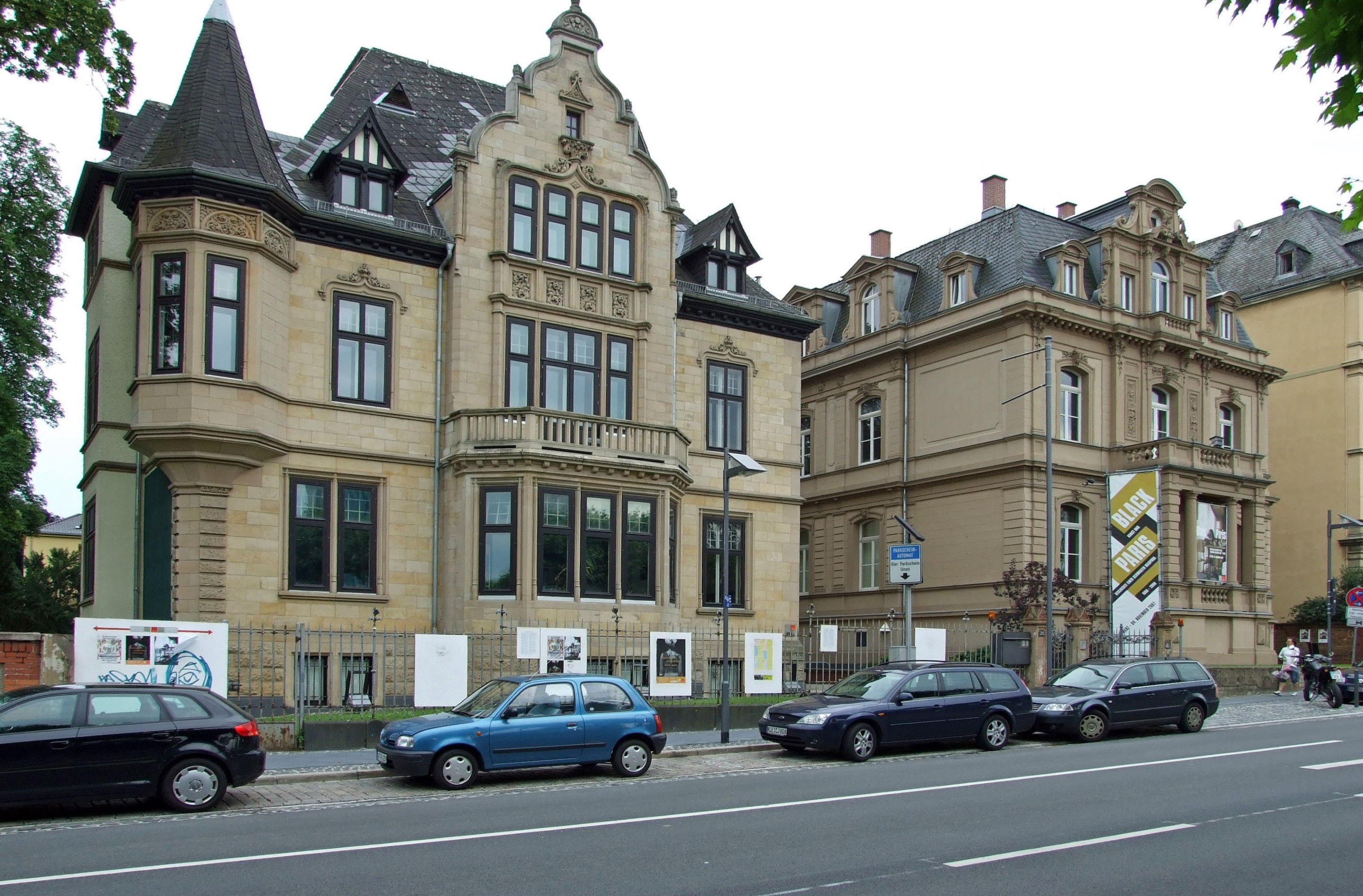Museum Der Weltkulturen on:
[Wikipedia]
[Google]
[Amazon]

 The Museum of World Cultures (german: link=no, Museum der Weltkulturen) is an
The Museum of World Cultures (german: link=no, Museum der Weltkulturen) is an
Viel neuer Raum für Museum der Weltkulturen
Michael Hierholzer, ''
''Journal Ethnologie'', the museum's E-zine
{{Authority control Museums in Frankfurt Museums established in 1904 Ethnographic museums in Germany Decorative arts museums in Germany 1904 establishments in Germany Cross-cultural studies

 The Museum of World Cultures (german: link=no, Museum der Weltkulturen) is an
The Museum of World Cultures (german: link=no, Museum der Weltkulturen) is an ethnological
Ethnology (from the grc-gre, ἔθνος, meaning 'nation') is an academic field that compares and analyzes the characteristics of different peoples and the relationships between them (compare cultural, social, or sociocultural anthropology). ...
museum in Frankfurt
Frankfurt, officially Frankfurt am Main (; Hessian: , "Frank ford on the Main"), is the most populous city in the German state of Hesse. Its 791,000 inhabitants as of 2022 make it the fifth-most populous city in Germany. Located on its na ...
, Germany. Until 2001 it was called the Museum of Ethnology (''Museum für Völkerkunde'').
History
It was founded in 1904, as a civic institution, to bring together the ethnographic collections of the city of Frankfurt. In 1908 the museum moved into thePalais Thurn und Taxis
The Palais Thurn und Taxis () in Frankfurt, Germany was built from 1731 to 1739 by Robert de Cotte and commissioned by the Imperial Postmaster, Prince Anselm Franz von Thurn und Taxis (1714–1739).
The building was heavily damaged in World War ...
in the city centre. In 1925 the city acquired the collections of the Institute of Cultural Morphology (today the Frobenius Institute), founded by the ethnologist Leo Frobenius
Leo Viktor Frobenius (29 June 1873 – 9 August 1938) was a German self-taught ethnologist and archaeologist and a major figure in German ethnography.
Life
He was born in Berlin as the son of a Prussian officer and died in Biganzolo, Lago Ma ...
. He relocated to Frankfurt along with the institute and become an honorary professor of the University of Frankfurt. In 1934 he became the director of the museum. The roles of museum director and institute director continued to be occupied by the same person (including Frobenius's successors) until 1966, when the university became state-run, since when the museum has again been run by the city.
Significant parts of the collection were lost when the Palais was destroyed by bombs in World War II. However, some items had already been evacuated from the Palais – these survived the war, and in 1973 they were put on display in an old villa on the banks of the Main
Main may refer to:
Geography
* Main River (disambiguation)
**Most commonly the Main (river) in Germany
* Main, Iran, a village in Fars Province
*"Spanish Main", the Caribbean coasts of mainland Spanish territories in the 16th and 17th centuries
...
, where they have been ever since. The Museum of World Cultures therefore counts as one of the earliest museums on what is now the Museumsufer
Museumsufer (Museum Embankment) is the name of a landscape of museums in Frankfurt, Hesse, Germany, lined up on both banks of the river Main or in close vicinity. The centre is the historic art museum Städel. The other museums were added, partly ...
.
The museum has expanded since 1973 and now occupies three adjacent buildings on the Schaumainkai
Schaumainkai is a street in central Frankfurt, Germany, running along the south side of the river Main. It includes a number of museums including the Städel. Because of the large concentration of museums on the riverside, the area is called Museum ...
– nos. 29 (the main building), 35 (the original villa), and 37 ("Gallery 37"), which were acquired and/or rebuilt in the 1980s. The collections include over 65,000 objects from Oceania, Australia, Southeast Asia, the Americas, Africa and Europe. Gallery 37 hosts exhibitions of contemporary works by Indian, African, Oceanian and Indonesian artists.
In 2010, plans were announced for a new phase of construction to further expand the museum.Michael Hierholzer, ''
Frankfurter Allgemeine Zeitung
The ''Frankfurter Allgemeine Zeitung'' (; ''FAZ''; "''Frankfurt General Newspaper''") is a centre-right conservative-liberal and liberal-conservativeHans Magnus Enzensberger: Alter Wein in neuen Schläuchen' (in German). ''Deutschland Radio'', ...
'', 26 June 2010.
The directors of the Museum der Weltkulturen are:
* 1904–1919: Bernhard Hagen
* 1919–1935: Johannes Lehmann, Interimsdirektor
* 1935–1938: Leo Frobenius
* 1938–1939: Adolf E. Jensen, Interimsdirektor
* 1940–1945: Karin Hissink
* 1946–1965: Adolf E. Jensen
* 1965–1966: Carl August Schmitz
* 1966–1971: Herrmann Niggemeyer
* 1972–1983: Heinz Kelm
* 1984–1985: Johanna Agthe, Interimsdirektorin
* 1985–1998: Franz Josef Thiel
* 1998–2000: Johanna Agthe, Interimsdirektorin
* 2000–2008: Anette Rein
* 2008–2010: Christine Stelzig
* 2010–2015: Clementine Deliss
* 2015–2019: Eva Raabe, kommissarische Direktorin
* since 1 October 2019: Eva Raabe
See also
*Museumsufer
Museumsufer (Museum Embankment) is the name of a landscape of museums in Frankfurt, Hesse, Germany, lined up on both banks of the river Main or in close vicinity. The centre is the historic art museum Städel. The other museums were added, partly ...
* List of museums in Germany
This is a list of museums and galleries in Germany.
Baden-Württemberg
Bavaria Augsburg
* Augsburg Puppet Theater museum
* Augsburg Railway Park
* Fuggerei museum
* German Ice Hockey Hall of Fame
Bayreuth
* Kunstmuseum Bayreuth
Eichstät ...
References
External links
* *''Journal Ethnologie'', the museum's E-zine
{{Authority control Museums in Frankfurt Museums established in 1904 Ethnographic museums in Germany Decorative arts museums in Germany 1904 establishments in Germany Cross-cultural studies